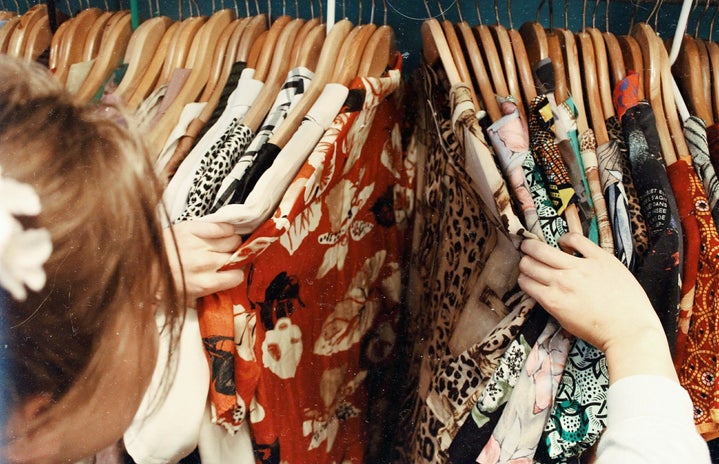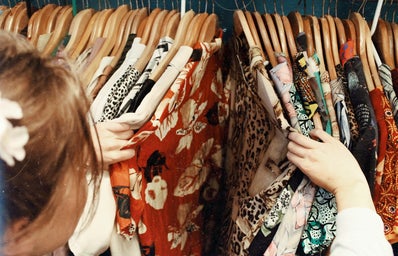Sustainability in fashion is what everyone’s talking about, and rightly so. 10% of global CO2 emissions per year are produced by the fashion industry. What’s less talked about, however, is that going completely sustainable is not an option for everybody.
Producing clothes ethically tends to come at a larger financial cost to consumers who are less well off than others. Sustainable fashion is understandably more expensive to produce, and even those brands that attempt to retail at affordable prices are often out of reach for many people, especially as a regular place to shop. TALA, for example, is a sustainable activewear brand which prides itself on pricing its ethical alternatives at a similar cost to competitors already on the market, selling most of its items for around £30 each. For students on a budget, this is something we might be able to afford occasionally, but many of us will not be able to spend this amount on everything we buy.
The fast fashion industry has lots of lessons to learn. With every factory scandal and environmental wrongdoing that gets exposed, we can hope it is starting to learn them. Still, terming those who shop at fast fashion outlets “gross”, as one Twitter user said, is both unhelpful and in many ways classist.
The language surrounding sustainability in fashion needs to change: instead of rushing to criticise those who we see as not going far enough, we should be educating people on the positive changes they can make, however small. Even the so-called role models of sustainability are not perfect, with TALA’s clothes containing 92% upcycled or recycled material instead of 100%. This was a conscious choice made by the brand in order to keep its clothes affordable, especially to younger consumers who might otherwise be unable to shop sustainably. In this way, TALA is able to have a greater impact than companies selling expensive products made from 100% recycled material, which would otherwise only be accessible to a smaller consumer base.
So, aside from shopping with sustainable brands, what small steps can we make to improve our fashion carbon footprint?
Depop’s rising popularity has been good for sustainability. Many people go straight to the app instead of buying outfits brand new and others sell their old clothes rather than sending them to landfill. But there is a flip-side. Buying clothes just to immediately sell them on Depop, especially from charity shops, is not sustainable. This adds to the typical environmental impact of making and shipping a product, and clears out charity shop stock.
Not only do charity shops make-second hand clothing cheaper and more accessible, they are a necessity for many. Re-selling and profiting off of these items is unethical, taking products away from someone else who could better use them. This is especially a problem with the trend for oversized clothing, as those with body types in larger sizes may already struggle to find items in their size. Buying clothes from a charity shop in order to save money or improve sustainability isn’t inherently wrong, but doing it for financial gain certainly is.
When an item is no longer wanted, donating to a charity shop or selling it on Depop is a great option. Selling online, especially if it is an expensive item, can still be sustainable, and the money saved could go towards new sustainable alternatives in the future.
Sustainability is important, but the movement needs to become open and accessible to all.



